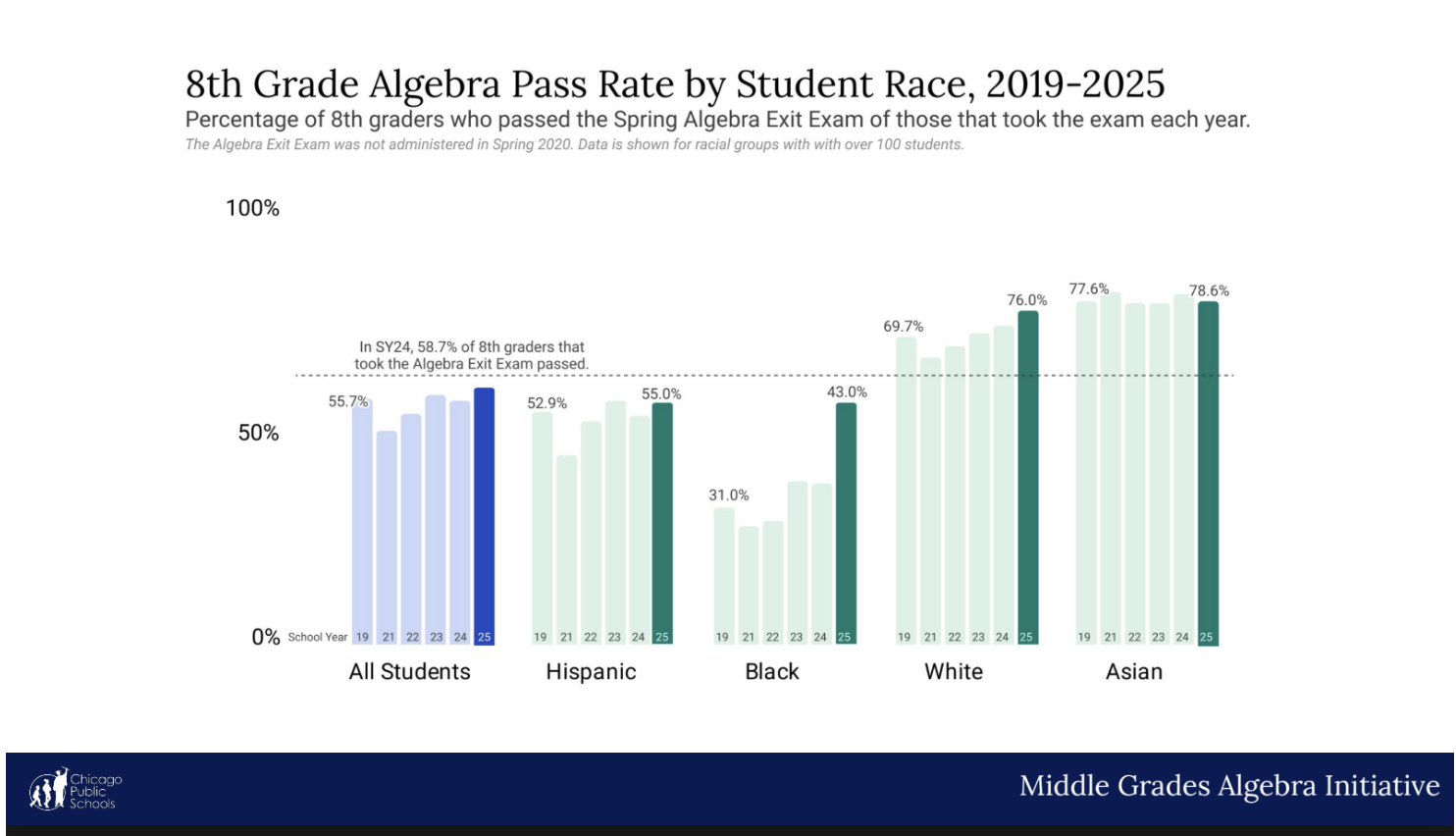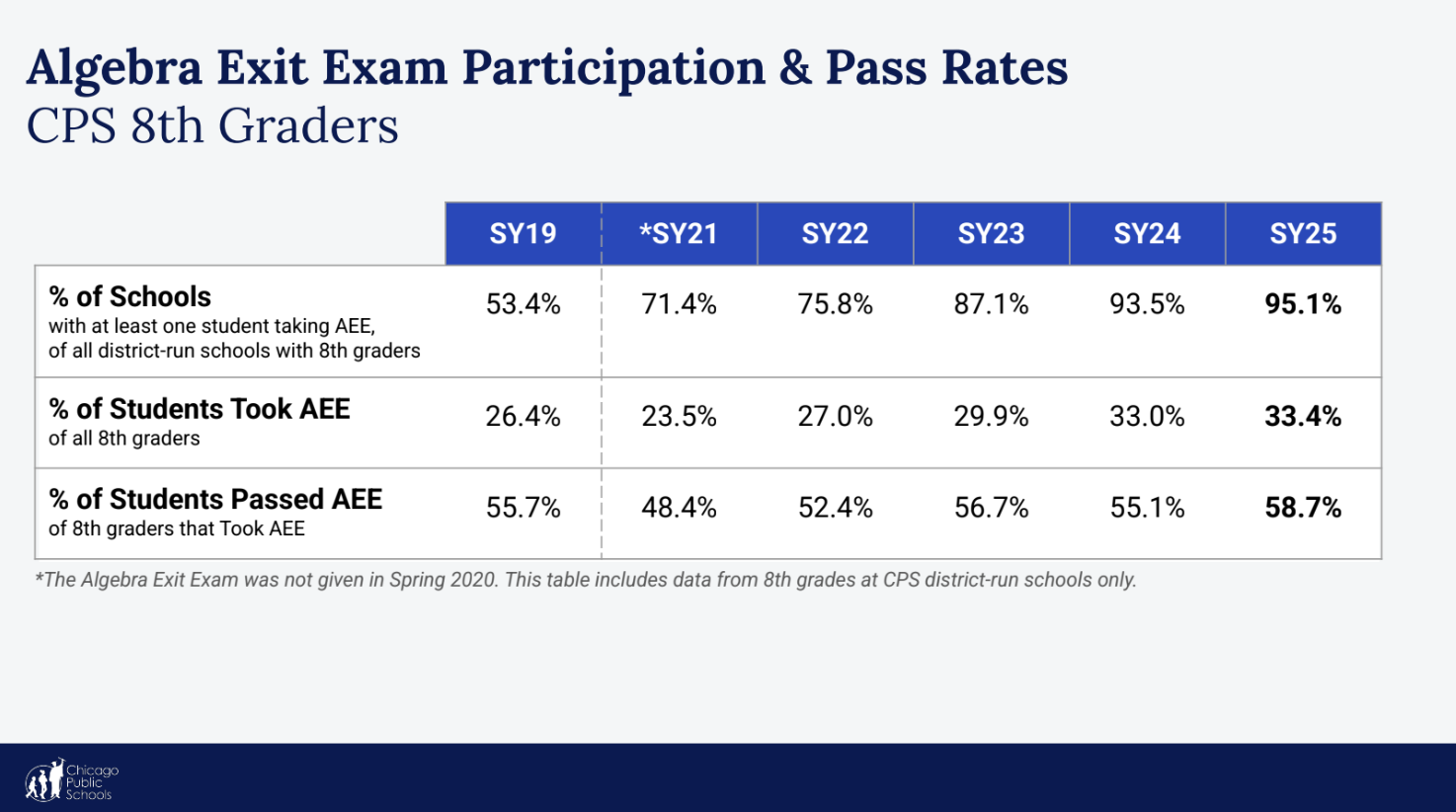Expanding Access, Advancing Equity: CPS Surpasses Algebra Goals in 2025
Chicago Public Schools (CPS) is rewriting what’s possible when systems commit to early access and equitable opportunity in mathematics.
This year, 35% of CPS 8th graders took Algebra—and more than 60% of those students passed the district’s end-of-course exam. That milestone represents not just a numeric gain, but a meaningful signal that broader participation and stronger performance can go hand in hand.
"When we are intentional about fostering the conditions of belonging and reinforcing positive math identity, our students thrive,” shared Dr. Corey Morrison, Executive Director of STEM for CPS.
“We continue to be strategic and collaborative with all of our stakeholders to ensure all students feel included and empowered to take this course and succeed. In particular, our Black students have seen tremendous growth in success over the past three years. We are so proud of our educators who have been working on this initiative for years and continue to refine and improve on their approach to meet the needs of all students.”
Over the last five years, CPS has increased both participation and performance for all student groups. This year, participation among Black 8th graders rose to 20.6%, up from just 11.3% in SY21. Their pass rate jumped 12 percentage points in a single year—from 31% to 43%—the highest year-over-year growth for any student group.
These gains reflect years of strategic work to expand Algebra access through compacted coursework in grades 6–7 and a growing network of school-based and hub models across the city. Since 2019, the number of CPS schools offering Algebra has grown from 213 to 386. In SY25, 98% of schools with 8th grade students had at least one student take the Algebra Exit Exam, and the majority of students passed the exam.
"We’re excited not only to see steadily growing pass rates, but especially glad that it’s a result of more students participating in Algebra across the whole city,” said Laura Margaret Burbach, Math Programs Manager at CPS.
Looking ahead, CPS plans to build on this momentum. Twenty-one schools intend to shift from hub-based Algebra offerings to school-based models next year. And three more schools—including some that offered no Algebra this year—plan to expand access in SY26.
As NMIP districts continue to learn from one another, CPS’s story offers inspiration—and a practical model—for how to prioritize early access without compromising quality. As Hillary Knudson of the National Math Improvement Project put it: “It’s amazing to see both an increase in participants alongside increases in pass rate! It’s much easier to do one without the other.”
Chicago’s data proves: With the right strategy and commitment, you can do both.


